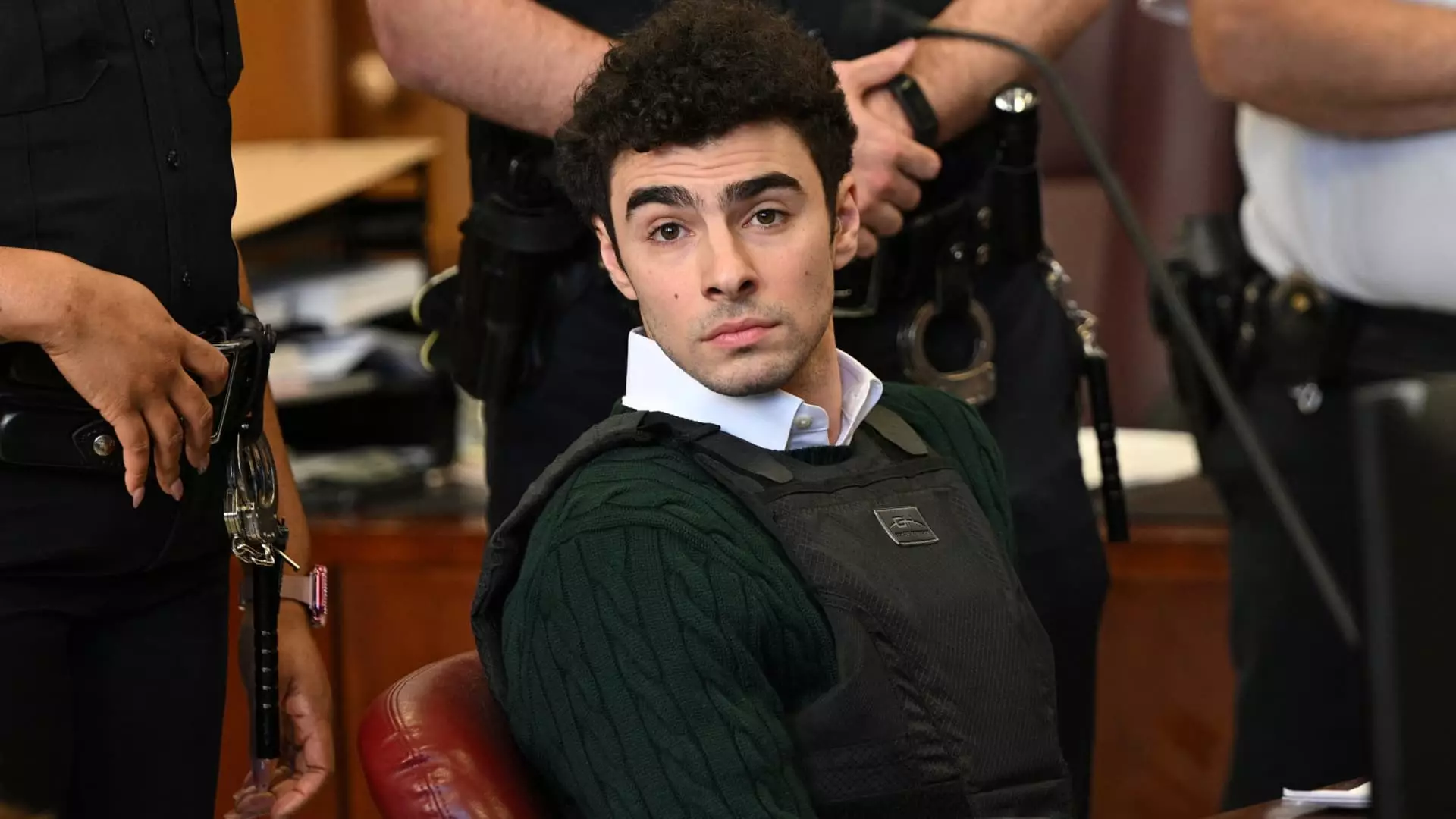In a shocking turn of events, the murder of UnitedHealthcare CEO Brian Thompson has thrust the complexities of ideological violence into the mainstream consciousness. Luigi Mangione, a 26-year-old graduate from the University of Pennsylvania, was arrested following Thompson’s assassination, which took place on a busy Manhattan street in December. This brutal act, described as a “premeditated, cold-blooded assassination” by U.S. Attorney General Pam Bondi, carries with it a chilling significance that beckons society to confront the darker sides of personal conviction and extremism.
Mangione’s motivations appear grotesquely intertwined with his ideological beliefs about the health insurance industry. The circumstances surrounding Thompson’s slaying point to a carefully plotted attack aimed not just at one individual, but as an assault on an entire sector—a sector that plays a crucial role in the lives of millions. In an age where radical perspectives are easily amplified by social media and echo chambers, this incident serves as a stark reminder of the potentially lethal consequences of unchecked rage towards an industry or system one believes to be unjust.
Death Penalty: A Question of Justice or Retribution?
The looming possibility of the death penalty lays bare severe ethical questions about the limits of justice and morality in the face of senseless violence. Prosecutors have argued that Mangione’s actions demonstrated substantial planning and a clear intent to inflict harm—not only upon Thompson as a person but on society at large in its dealings with health insurance. While many may argue for the harshest penalties as a deterrent against future ideological motivated crimes, one must ask whether unforgiving retribution can ever truly serve the greater good.
Mangione’s legal representation has mounted a staunch defense against the death penalty, claiming it infringes upon his rights and prejudices potential jurors. While one cannot overlook the monstrous nature of his alleged crimes, it is worth pondering whether executing Mangione would actually contribute to a more humane society or foster a cycle of vengeance that ultimately fails to address the root cause of this ideological strife.
A Society in Distress: The Role of Ideological Polarization
The increasing incidence of violence rooted in ideological beliefs warrants serious introspection about the state of our discourse. Mangione’s alleged targeting of Thompson was not merely an act of rage but a calculated endeavor meant to send ripples of unrest through society. With an industry as pivotal as health insurance, the consequences of such violent expression extend beyond individual lives lost; it reverberates through the societal fabric, affecting families, communities, and even our collective psyche.
In this polarized climate, we must encourage dialogues that bridge understanding rather than exacerbate divisions. The notion that Mangione sought to rally political and social opposition through brutality signifies a disturbing trend among individuals who feel disillusioned and powerless. Unfortunately, when driven by extremism, these frustrations can manifest as deadly acts, steering us further away from constructive social change and into the depths of chaos.
Legal System’s Responsibility and Media’s Influence
Judge Margaret Garnett’s recent admonitions regarding public comments from prosecutors echo the crucial need for a fair and impartial judicial process. Instilling confidence in our legal system is paramount, as it not only safeguards defendants’ rights but also fortifies public trust. When statements from high-profile officials influence potential jurors or sway public opinion, it can unnervingly tilt the scales of justice.
At the same time, it is essential for media narratives to approach such sensitive cases with care. Sensationalism can amplify fears and perpetuate a cycle of stigma surrounding mental health, dissent, and ideological beliefs. In Mangione’s case, careful journalism must illuminate the complexity of his motivations without oversimplifying or vilifying the broader socio-political discourse that may have contributed to his actions.
Final Thoughts on Ideology and Violence
As we grapple with the implications of Mangione’s horrific crime, we are forced to contemplate the responsibility of society in addressing the roots of ideological extremism. It would be a disservice to reduce the conversation to mere violence and punishment without interrogating the factors that stir the pot of discontent. A more compassionate engagement with dissenting viewpoints could build a framework within which understanding replaces hatred, and dialogue replaces violence. Only through such efforts can we hope to construct a society that disarms tragic narratives like this one, rather than perpetuating them.


Leave a Reply